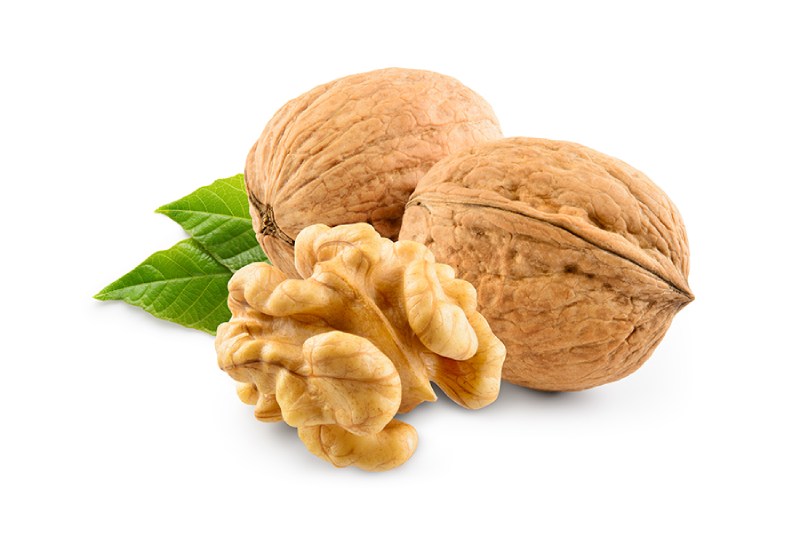When Soaking Walnuts before Eating, why is that Important?

Some people soak walnuts before eating for a variety of reasons, but the main ones are to increase the nutrients they absorb, eliminate bitterness, and make them easier to digest. This procedure is thought to have some possible health advantages. Let’s examine why it is advised to soak walnuts:
1. Improved Absorbance
Improving the digestibility of walnuts is a primary motivation for soaking them. Nuts might be hard for some people to digest because they contain phytic acid and enzyme inhibitors. When phytotic acid binds to minerals, such as calcium, magnesium, and zinc, the body is unable to absorb them. It is thought that soaking nuts, especially walnuts, in water for several hours or overnight lowers their phytic acid and enzyme inhibitor levels, which facilitates better digestion. When walnuts are soaked instead of eaten raw or unsoaked, some people claim to have reduced gastrointestinal distress, such as gas or bloating.
2. Reduction of Bitterness
Natural substances found in walnuts, such as tannins, are what give them their bitter flavor. Some of these chemicals can be extracted by soaking walnuts in water, which helps lessen their bitterness. When compared to raw walnuts, soaking walnuts are often said to have a more pleasant flavor. Those who dislike raw walnuts or are sensitive to harsh flavors may find this very helpful.
3. Increased Uptake of Nutrients
Nutrient absorption from walnuts may also be improved by soaking them. Soaking can aid in the release of bound minerals and increase their bioavailability for absorption in the digestive tract by lowering phytic acid levels. This could be especially advantageous for people on plant-based diets or those who are deficient in certain nutrients, since nuts are an excellent source of important minerals like zinc, calcium, and iron. It is crucial to remember that the effect of soaking on the absorption of nutrients can differ based on personal characteristics including intestinal health and dietary habits.
4. Elimination of Pollutants
Eliminating germs, mildew, and other impurities from the surface of the walnuts is another possible advantage of soaking them. It is thought that soaking walnuts in water with salt or vinegar added may help clean and sanitize the nuts, lowering the possibility of contracting a foodborne illness. This can be especially crucial if there are doubts about the walnuts’ freshness or if they are not being stored correctly. But before soaking, make sure you use clean, filtered water and throw away any walnuts that look rotten or moldy.
5. Softening Agent for Use in CookingIt’s
The texture of soaked walnuts is softer than that of raw walnuts, which is useful in several cooking applications. To give smoothies, sauces, or nut milks a smoother consistency, soaked walnuts can be easily blended in. If you want a softer texture, you may also use them as the foundation for raw desserts, energy bars, or vegan cheeses. To get the right taste and texture, some recipes might ask for soaked walnuts explicitly.
6. Walnuts’ Nutritional Makeup
Nutrient-dense walnuts are well known for having a high concentration of omega-3 fatty acids, especially alpha-linolenic acid (ALA), which lowers cholesterol and promotes inflammation, thereby supporting heart health. Walnuts are also a great source of fiber, plant-based protein, and important minerals including copper, phosphorus, and magnesium. Additionally, they contain antioxidants like polyphenols and vitamin E, which help prevent chronic diseases and fight oxidative stress. Walnuts are a great complement to a healthy eating pattern since they may help manage weight, improve brain function, and lower the risk of cardiovascular disease when included in a balanced diet.
7. When Should You Consume Walnuts?
Numerous health advantages can be obtained from walnut consumption at any time of day. However, because they are high in protein, fiber, and healthy fat, eating them as a snack in between meals or incorporating them into salads, desserts, or breakfast can help control hunger and promote fullness. Because walnuts include melatonin and other minerals that promote calm, eating them before bed may also improve the quality of your sleep. In the end, adding walnuts to your diet on a regular basis in moderation can benefit your general health and wellbeing. Try a variety of meal timings and combinations to see what suits your tastes and way of life the best.